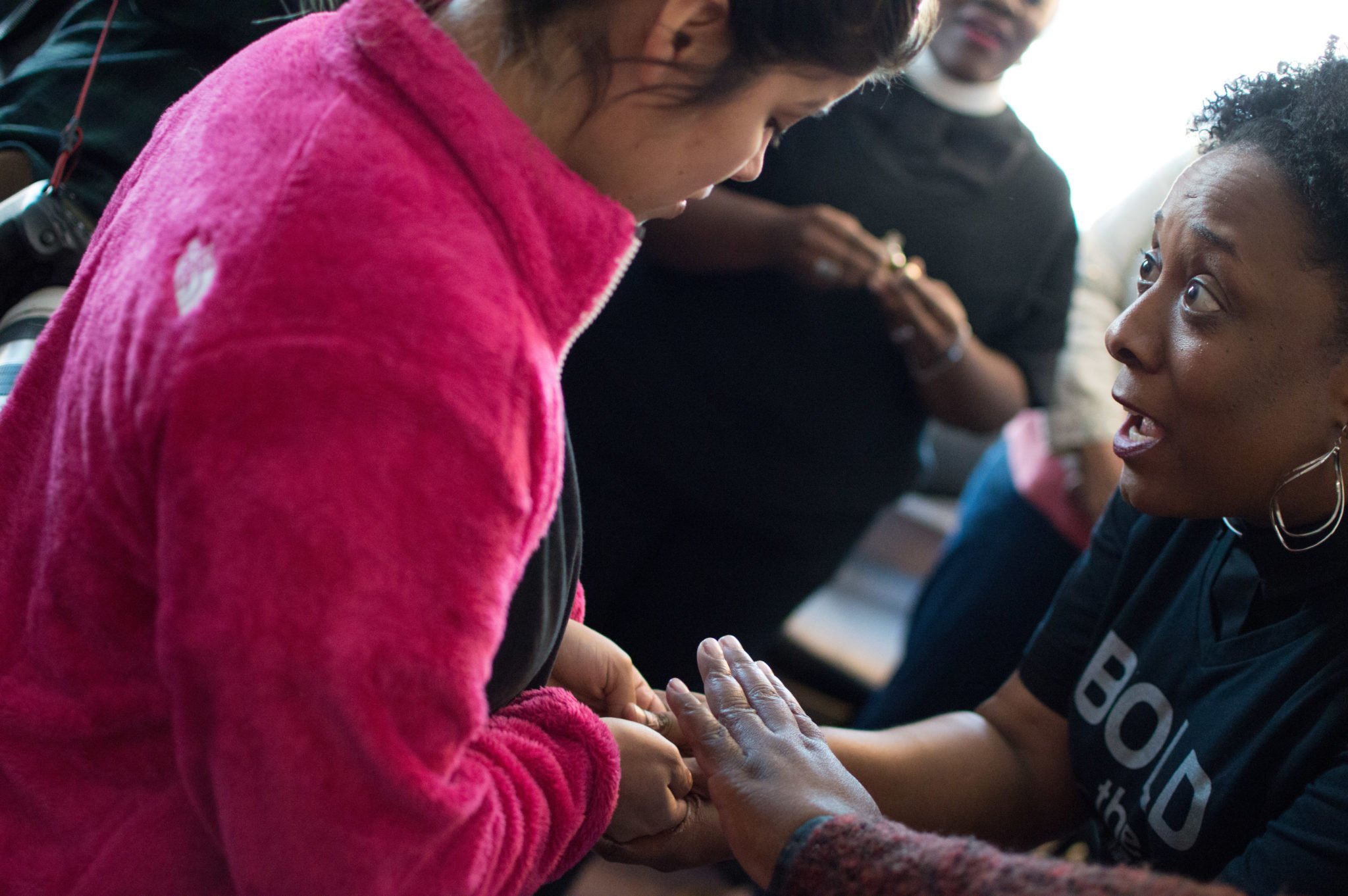On a scorching afternoon in mid-July, clergy members gathered outside a small unmarked building tucked away in a business complex in North Austin. They filed inside, up the stairs, and into the waiting room of the Whole Woman’s Health abortion clinic. There, Christian and Jewish leaders stood in a circle and sang phrases in chorus: Hallelujah. Do not fear. You are loved. Bless this room. Bless this womb.
The 20 or so people had assembled not to protest, but to bless the clinic, burning sage in the exam rooms and reading patient and staff testimonials. “We’re gathered together today to affirm this as a sacred space,” said Reverend Cari Jackson, with the Religious Coalition for Reproductive Choice. “To affirm this as a space in which people meet God, in ways that some might not understand. … In the cacophony of noise today, it is important that we gather in spaces and affirm the blessing, lest we begin believing the noise.”
The clinic blessing is part of a larger movement by progressive faith leaders across the U.S. to counter the “noise” of anti-abortion organizations and lawmakers. In Texas, local faith leaders and advocates held a blessing for a Fort Worth clinic two years ago; another is planned in McAllen this fall. Meanwhile, the Texas Freedom Network (TFN), a left-leaning nonprofit that works to protect religious freedom, started a project called Just Texas, which designates places of worship across Texas that are supportive of women’s reproductive health choices, including abortion. Some faith leaders at the Austin gathering wore pins that read, “My congregation trusts women.” In the past three years, 19 congregations have received the designation, with 70 more in progress.
“All of the push against [abortion] is coming from people of faith. And the dominant narrative across the country, and particularly in Texas, is that if you are a Christian, you are a pro-life, anti-abortion person,” said Sonja Miller, outreach and faith director at TFN, who founded Just Texas in 2016. “It’s actually not the majority opinion; it’s the loudest, most dominant voice. So it’s absolutely essential that people of faith who fully affirm women accessing their own moral agency and making their own decisions step up and speak out affirming that.”

Conservative Texas groups and lawmakers have cited their faith to back abortion restrictions, but polling shows that majorities across many religions actually support abortion rights. Late last year, faith groups filed a court brief against Texas’ fetal burial law, saying the requirement “ignored and disrespected” religious freedom.
“Let’s be clear, there is nothing in the Christian scripture that condemns abortion—it just ain’t in there,” said Reverend Amelia Fulbright, director of the Labyrinth Progressive Student Ministry. Rabbi Alan Freeman, with Temple Beth Shalom, added: “As a matter of faith, women have been given free will with regard to their bodies. … As a matter of faith, one’s beliefs about the nature of life is a theological issue, not a legislative one.”
Miller hopes her efforts will lead to a cultural shift and eventually policy change. She noted that about one in four women in America will have an abortion by age 45. “That means every congregation is full of women who’ve had abortions. But no one feels safe, even in their own faith community, to talk about it.”
READ MORE:
-
Inside Texas’ Failed Experiment to Replace Planned Parenthood with an Anti-Abortion Group: The Heidi Group’s quick rise and fall is a cautionary tale of prioritizing politics over proven health providers.
-
Texas Is at the Center of Trump’s Anti-Immigrant Facebook Ad Campaign: His reelection campaign has spent big money in Texas on a digital advertising effort.
-
When Islamophobia Backfires: While Muslim-bashing is relatively common in Texas and other red states, two recent incidents from North Texas show that it’s not always political gold.







